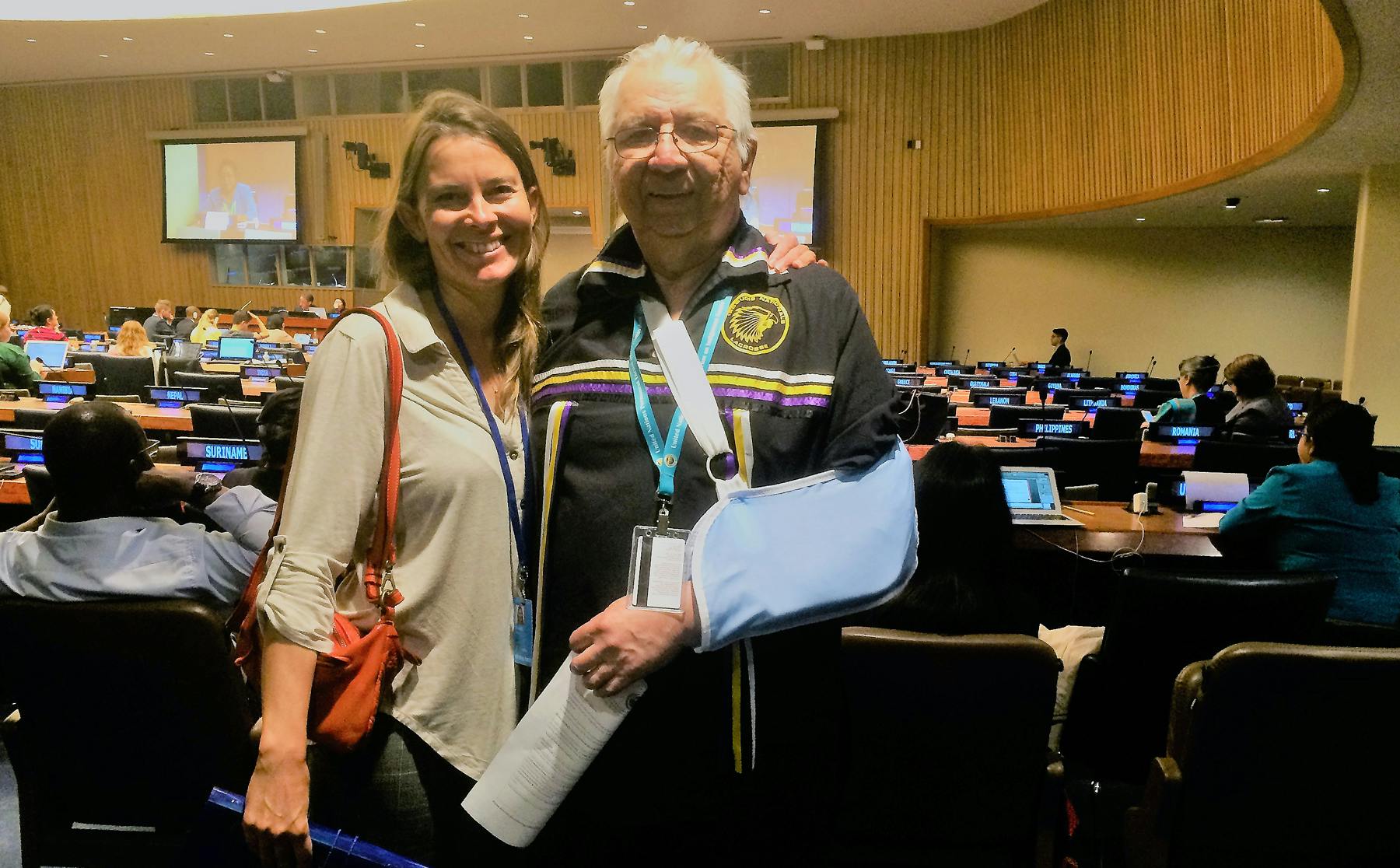Ulia Gosart, a lecturer in the UCLA Department of Information Studies, has written an article titled, “A Path Forward: Respecting Free, Prior and Informed Consent” for the organization, Cultural Survival. Gosart, an alumna of UCLA IS (’13, Ph.D.), has written extensively and has organized UN discussions on this topic.
“Free, Prior and Informed Consent (FPIC) remains among the most controversial regulatory mechanisms created to manage professional economic and social relationships between Indigenous communities and external parties,” Gosart writes. “In practice, governments, assume responsibility for the welfare of its citizens; citizens’ consent is embedded in legal and political institutions of the state into which a person is born.”
Gosart asserts that “Indigenous politicians question legitimacy of the states’ institutions of governance as means of regulation of the lives of Indigenous men and women,” and that indigenous leaders appeal to the right of self-determination as it is stated in the UN’s Declaration on the Rights of Indigenous Peoples.
“Indigenous men and women were not the original parties to making current institutions of governance of their respective states; they do not share the same values as the rest of the state populations… [and] stress that citizenship has historically functioned as an instrument of assimilating and dispossessing Indigenous communities,” Gosart writes.
Gosart posits that the struggles surrounding FPIC are universal. She cites plans for construction of a gas pipeline from that will destroy the territory of the Indigenous Izhora and Vod’ peoples along the Gulf of Finland and the Kurgalsky Biodiversity Reserve in Russia, as well as the Chepete-Bala hydroelectric dam project in the Amazon region of Bolivia, and the Dakota Access Pipeline Project in the United States, as actions that will “… affect cultural and subsistence practices of Indigenous men and women…” and displace thousands of people while compromising natural and protected environments.
Advocacy potential of FPIC extends to protection of indigenous knowledge and culture. Ashley Evans Bandy, a graduate student at UCLA IS, collaborates with Gosart on the examination of how consent can be used to develop guidelines and practices for protecting indigenous intangible heritage in digital spaces.
“While FPIC has not often been explicitly named as a principle in contemporary cases, the tendency of memory institutions to consult both local and international protocols speaks to how FPIC could serve as inspiration and guidance, particularly for online and digitization projects,” Bandy is quoted as saying in Gosart’s article. “Addressing digital collaboration directly could have a ripple effect, encouraging engagement with not only UN protocols, but with local protocols specific to an Indigenous community, while also acknowledging that the digital can have cultural and economic impacts on an Indigenous community.”
“FPIC has potential in affording Indigenous men and women the right to represent their past; to shape contemporary political and cultural discourses concerning their communities; and to benefit from research conducted on their lands and with their participation,” Gosart writes. “Indigenous struggle over the recognition of FPIC expresses issues that go beyond Indigenous-state relationships, and aims at restitution of historical justice; at revising contemporary institutions of governance toward ensuring equality of inclusion, and thus in support of political, economic and cultural rights and freedoms of citizens.”
Gosart is a descendant of Udmurts in Russia. She has been an Indigenous rights advocate for more than a decade, beginning with her service to LIENIP, a Russian Indigenous rights organization.
To read, “A Path Forward: Respecting Free, Prior and Informed Consent” for the organization, Cultural Survival” by Ulia Gosart, click here.
Above: UCLA IS lecturer Ulia Gosart with Kenneth Deer of the Mohawk Nation at Kahnawake, Canada, at the United Nations Permanent Forum on Indigenous Issues in 2017. Deer is an internationally recognized indigenous rights activist.
Courtesy of Ulia Gosart
